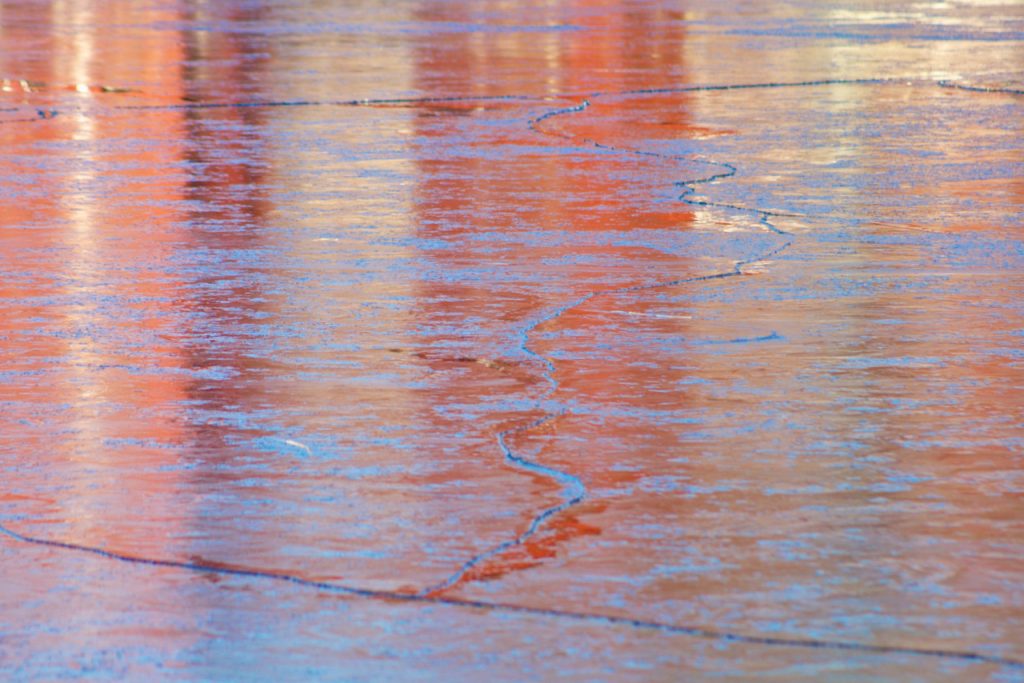Welcome to this special, end-of-the-year edition of The Zone! Banksy‘s perfect illustration of 2020, various ways to exorcise 2020, books of the year picked by Seth Godin, Tim Ferriss, and others, the lost day of Kiribati, and more. Happy New Year!

I think we all agree that the most merciful thing you could say about 2020 is that it is over. There were glimpses of light and moments of joy, of course, and those we should cherish. Here’s the last list of the year. Have a wonderful weekend, stay safe, and be kind to one another. I’ll be back next year!
- A perfect illustration of 2020: Banksy Ends 2020 With New COVID-19 Street Art
- This year has seen so many seismic events that Oxford Dictionaries has expanded its word of the year to encompass several “Words of an Unprecedented Year”. Casper Grathwohl, the president of Oxford Dictionaries, said: “I’ve never witnessed a year in language like the one we’ve just had. The Oxford team was identifying hundreds of significant new words and usages as the year unfolded, dozens of which would have been a slam dunk for Word of the Year at any other time. It’s both unprecedented and a little ironic – in a year that left us speechless, 2020 has been filled with new words unlike any other.” You can download the report here (it’s fascinating, at least if you’re as interested in languages as I am). Bonus: From COVID to curbside, 2020 changed our vocabulary too.
- How to exorcise 2020. I’m sure I’m not the only one thinking about exorcism these days. I’m tempted to use the Colombian tradition of burning the “old year” (año viejo). It seems fitting, somehow.
- Good News Stories That Will Help Restore Your Faith in the World. We have to remember that there’s much more in the world than the terrible news television and newspapers are feeding us. And that people are good.
- National Geographic‘s special issue 2020: The Year in Pictures (January 2021). The magazine has never singled out a year for such a retrospective in its 133 years. But then, 2020 was special, wasn’t it? Bonus: Nat Geo’s most compelling images of the 21st century and best animal photos of 2020.
- The most striking images of 2020, selected by BBC Culture. It’s fascinating how one year can be gone so quickly and so slowly at the same time. We happened to be in Australia during the devastating bush fires, and we believed that would be our most dramatic memories of the year. All that seems to be so far away now; bush fires merely an inconvenience.
- 1,273 People Share Their Best Life Lessons from 2020. From Mark Manson’s excellent newsletter Mindf*ck Monday. He asked his subscribers: “What have been your biggest lessons from 2020?” And 1.273 people answered. It’s fascinating reading. I found that the best blogs and newsletters (and Manson has both) have great readers, and very often, their comments are as interesting as the article.
- Austin Kleon and Seth Godin‘s end of the year book lists. These men are responsible for many of my book purchases. It’s a good thing. Austin Kleon has a great newsletter, too, by the way.
- Forget New Year’s Resolutions and Conduct a ‘Past Year Review’ Instead says Tim Ferriss, and I agree. This is something I do every year, although in a slightly different form. I was thinking about publishing it here, but it felt too personal. I couldn’t. Maybe next year. Ferriss has a short (five items) but always interesting newsletter. Bonus: Chris Bailey‘s How to conduct an end-of-year productivity review.
- I can’t resist a book list containing the words “ultimate best books.” Literary Hub compiled their Ultimate Best Books for 2020-list. Bonus: the award-winning novels of 2020.
- Associated Press: Publishing saw upheaval in 2020, but ‘books are resilient’.
- The Smithsonian Magazine‘s editors picked 25 favorite articles from the year we’d rather forget.
- The Farnam Street team lists their favorite posts of the year.
- There Is No Such Thing as Normal— So Stop Waiting for It. Ryan Holiday about wishing for things to go back to normal.
- Speaking of Ryan Holiday, here’s his list of the best books he read in 2020.
- Two Widowed Penguins Overlooking Melbourne Skyline Together Wins Best Photo of 2020. Beautiful and heart-wrenching.
- Two Tenants Received Children’s Santa Letters So They’ve Been Answering Them the Last 10 Years. Awww.
- 31 December 1994 was skipped altogether in Kiribati as the Phoenix Islands, and Line Islands changed time zones from UTC-11 to UTC+13 and UTC-10 to UTC+14, respectively. Huh! Imagine being born on that day!
My Zone
Most Popular Posts in 2020
- A Leap of Faith
- The Unexpected Desolation of Getting What You Always Wanted
- The Only Thing We Have to Fear Is Fear Itself
- What 2020 Taught Me…So Far
- The Christmas Tree Is Up
- Great Books I Read in 2020
- The Zone: No. 8 – December 3, 2020
- Garden Life
- The Zone: No. 9 – December 10, 2020
- How To Take Better Photos With Your Phone
A Quote I’m Pondering
Yes, I’ve always been a dreamer, and yes, I have always tried. And dreams are special things. But dreams are of no value if they’re not equipped with wings and feet and hands and all that. If you’re going to make a dream come true, you’ve got to work with it. You can’t just sit around. That’s a wish. That’s not a dream.
Dolly Parton, in an interview in Bust magazine
From My Photo Archives

The red walls of the Lidingö Boat Yard reflected on the ice.

I wish you a very, very Happy New Year! May 2021 bring you and yours much joy and happiness!
